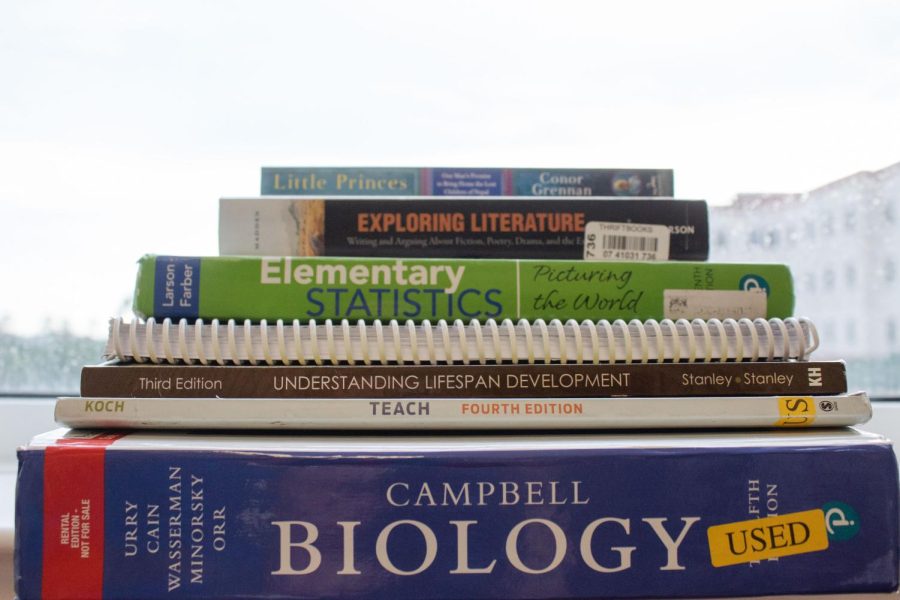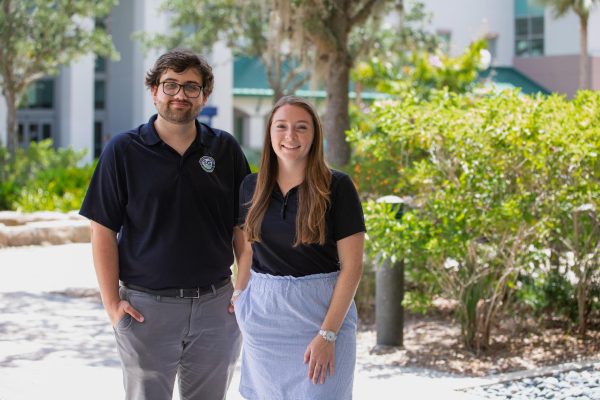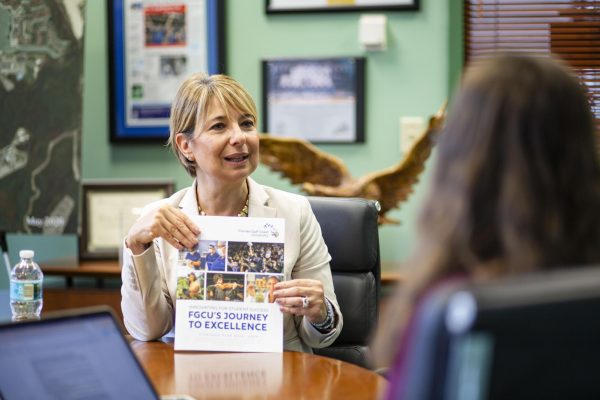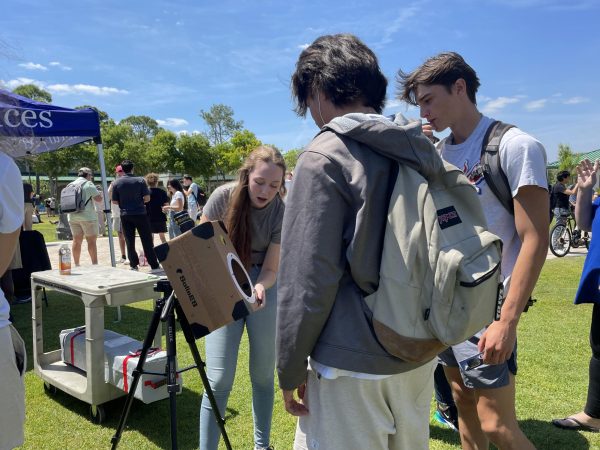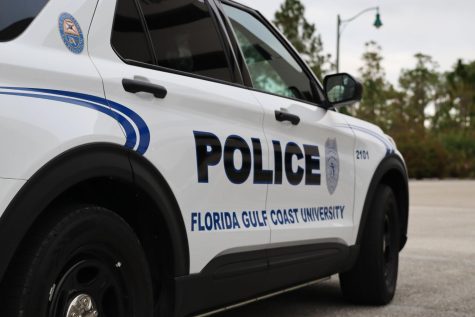FGCU’s Textbook Affordability Project is saving students thousands
September 18, 2022
FGCU has started a new initiative called the Textbook Affordability Project with the goal of providing textbook content to students without having them spend any money. The university is funding the project so the library can buy more textbooks to rent out, and while they have to stay in the library, students are able to scan them for personal use.
“The library has collected more than 1,400 textbooks for current courses and we loan them out at the circulation desk in two-hour chunks,” Anna Karras, the library marketing and communications coordinator, said. “The best part is right next to the desk, is a high-speed scanner where students can scan to a flash drive, email, or create an MP3 of the textbook material.”
To use the scanner, you place the textbook face up towards the camera. Then, on the touchscreen to the right, accept the device’s terms and conditions, press scan, and choose how you’d like to send or download the images.
One of the problems the project aims to solve is multiple students waiting on a textbook for common high-enrollment classes. With the library’s high-speed scanner, students can copy the material and return the textbook instead of renting it out within the two-hour period.
“The library recognizes that book prices are increasing, and sometimes students have to choose between purchasing a textbook and some other life issue,” Project Head Regina Beard said. “You take a class and discover the textbook is $250, and then maybe your car breaks down. You then have to decide whether or not to buy that textbook, and not buying that textbook may negatively impact a student’s ability to participate in the class.”
Beard said that was when the library started a petition to get help from the school, recognizing the cost constraints some students may face when they go to buy their textbooks. She said originally, the school took notice and supported the project with $40,000 worth of funding. This allowed them to purchase textbooks that exceeded $150 for classes with high enrollment.
Tracy Elliot is the dean of the FGCU Library and said one problem students have buying textbooks is either they only use them a few times or aren’t using them at all.
“I’ve taken classes in college where I didn’t even open the textbook, and I was not happy that I spent all that money,” Elliot said. “And over the last 10 years, the cost of textbooks has increased by 240%. It’s just insane, a book that was $10 is now $240.”
That’s where the library’s high-speed scanner may be a better alternative for students who only need a few chapters out of a course textbook.
According to the Education Data Initiative, the average student can spend between $628 and $1,471 annually on books and supplies. Hard copy books can cost up to $400 with the average price being between $80 and $150.
“The amount I usually pay at the beginning of each semester is $600,” junior Gillian Stocking said. “The most I have paid for a textbook is $400. In the long run, it wasn’t worth it, I only used it once in a while.”
Elliot said the library has been very involved in helping faculty come up with alternatives to expensive textbooks once they started to go up in cost.
“As a dean, I’m always making sure we’re doing what we can when we can. And trying to find new ways to do it.”
In a Facebook post created by the FGCU Library in 2018, the project had 381 textbooks and represented $58,675 in student savings. At 1,800 textbooks today, that number has grown to $82,178, according to the FGCU Library website.
“I would like for students to know more about this project and to take advantage of it,” Beard said. “They need to know the role of the library stems beyond the traditional research.”
































